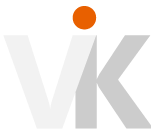In the fast-paced world of PR and marketing, burnout is a silent threat that can creep up on the most diligent among us. It’s not just about being overworked or stressed—it’s a state of chronic physical and emotional exhaustion, often accompanied by cynicism and detachment.
Now, what if I told you that the early signs of burnout are not just fatigue or loss of interest, but more subtle shifts in behaviour and attitude?
For instance, the onset of perfectionism or the unwillingness to delegate tasks, as we become more protective and controlling over our work.
The irony is that these signs often masquerade as ‘dedication’ or ‘commitment’ to our work.
You might also find yourself increasingly consumed by work, even during off-hours, leading to an unhealthy work-life imbalance.
Subtle changes in your health, like frequent headaches, changes in appetite or sleep, may also signal impending burnout.
So, how do we combat this modern-day malaise?
Firstly, understand that burnout is not a personal failing, but a systemic issue. It is crucial to create an environment that fosters well-being—this is especially pertinent for startups where the hustle culture often runs rampant.
Secondly, cultivate self-awareness. Pay attention to those changes in behaviour, attitude, and health. Recognize when you’re pushing too hard and grant yourself permission to rest.
Finally, establish boundaries. This could mean setting specific ‘switch-off’ times, designating certain weekends as work-free, or simply ensuring you take regular breaks during the day (try the Pomodoro technique).
Finally, instead of solely focusing on passion, let’s embrace the concept of ‘job crafting’. It’s about reframing our tasks, relationships, and perceptions of our job to make it more meaningful and engaging. It could be as simple as automating repetitive tasks to free up time for more creative work, or seeking out mentoring opportunities within the team
Remember, as PR and marketing professionals, we’re in the business of communication. Let’s not forget to communicate with ourselves, listen to our needs, and respond with empathy and care. After all, our greatest resource is not our tools or strategies—it’s us.

